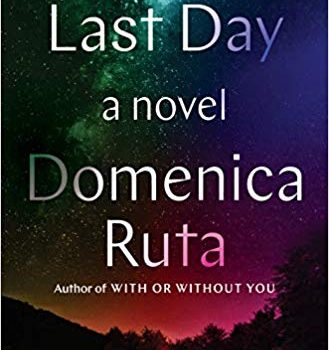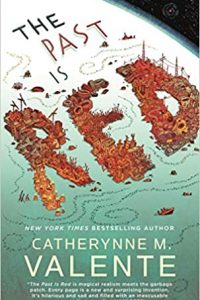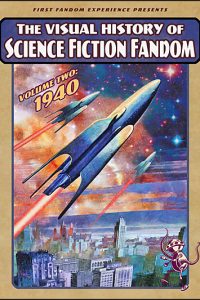Ian Mond Reviews Last Day by Domenica Ruta
 Last Day, Domenica Ruta (Spiegel & Grau 978-0525510819, $27.00, 272pp, hc) May 2019.
Last Day, Domenica Ruta (Spiegel & Grau 978-0525510819, $27.00, 272pp, hc) May 2019.
Domenica Ruta’s fiction debut, Last Day is a novel about the apocalypse, but one where there’s no sign that the world is about to end, no plagues no zombies, no fallout from a nuclear blast. Instead, Ruta invents an ancient holiday, named “Last Day”, where every year people celebrate the possible and sudden cessation of all life on the planet. It’s explained that this festival, “an oddity of the calendar… that begins at some point on May 27 and [ends] on May 28,” has its antecedents in the Babylonian era when a meteor slammed into the Indian Ocean during a total eclipse, leading everyone to believe that Armageddon was nigh. Whatever its true origins, more than four thousand years later the holiday is observed far and wide, each country with their own unique customs and rituals. Ruta lists a number of these traditions, such as Laos’s, where people cease speaking after midnight, Hungary’s, where they burn broomsticks and Japan’s, where “they celebrate with wild, extravagant spending sprees.” I particularly appreciated this bit:
Orthodox Jews do not acknowledge the holiday. Conservative Jews recognise it as a kind of Rosh Hashanah-cum-Yom Kippur for gentiles. Secular Jews do what secular Christians, Muslims, and nondenominational folks do throughout the U.S., and that is order pizza.
Sixteen-year-old Sarah Moss, however, hates Last Day. She considers the holiday racist, a “Western white invention” that’s ignored in Africa and fails to take into account the creation myths of other cultures like Native Americans. In a bid to get away from the celebrations (the pizza, the parties) Sarah heads to Boston where she hopes to connect with Kurt, a forty-something tattoo artist she met at a BBQ the previous year and has since fallen in love with. Kurt is struggling with his own shit: he’s never fully processed the guilt of smashing his car into a tree, mangling himself and giving his girlfriend, Mary, an acquired brain injury. Two decades later, he intends to use Last Day to make amends to Mary’s family. Another resident of Boston, Karen Donovan, heavily medicated and “monitored by a slew of social workers” is fired from her job at the YMCA on Last Day because she calls a customer a nasty word starting with “c.” Now unemployed, Karen decides to take the opportunity to track down her adoptive brother, with the intention of spending the rest of her life with him. Viewing it all from orbit as a crew-member of the International Space Station, is Thomas “Bear” Clark, an astronaut known for his humility and hard work. The celebration of Last Day compels Bear to reflect on his poor relationship with his family, his sisters, his ex-wife, and his daughters, the distance between them now both literal and figurative.
Last Day is not an easy book to like. The novel’s protagonists are people you’d actively avoid at a party. The existential issues they face – isolation, a lack of purpose, a need for forgiveness – echo the existential nature of the holiday, but a lack of self-awareness and a series of terrible, morally dubious choices (the relationship between Kurt and Sarah is particularly icky) means it’s hard to feel sympathy for their collective plights. If not for the fascinating titbits about the festival sprinkled through the story and a vein of black humour (with added farce), I doubt I’d have finished Last Day. But I did finish the novel and have struggled to shrug it off ever since: it’s stuck with me. This has led me to realise that as much as I found Sarah, Karen, Bear, and Kurt annoying, Ruta’s unwillingness to advance obvious and asinine observations about the human condition, to acknowledge that people rarely every make smart decisions, or come to deep and meaningful epiphanies about their inner self, seems a fair and honest reflection of the current moment. And then there’s the ending, which I won’t spoil, but which may cause some readers to throw the novel across the room. It’s a denouement that’s not entirely unexpected; it’s an outcome that will occur to some, though they might quickly dismiss it. It also seems to reinforce the thesis that if life has meaning it’s ephemeral at best. Now I’ve come to see the climax as a touch of brilliance, one that’s as laugh-out-loud funny as it is bitter and cynical, or, to be more precise, it perfectly encapsulates everything that’s strange, messy, surly, comical, and distinctive about Last Day.
Ian Mond loves to talk about books. For eight years he co-hosted a book podcast, The Writer and the Critic, with Kirstyn McDermott. Recently he has revived his blog, The Hysterical Hamster, and is again posting mostly vulgar reviews on an eclectic range of literary and genre novels. You can also follow Ian on Twitter (@Mondyboy) or contact him at mondyboy74@gmail.com.
This review and more like it in the July 2019 issue of Locus.
 While you are here, please take a moment to support Locus with a one-time or recurring donation. We rely on reader donations to keep the magazine and site going, and would like to keep the site paywall free, but WE NEED YOUR FINANCIAL SUPPORT to continue quality coverage of the science fiction and fantasy field.
While you are here, please take a moment to support Locus with a one-time or recurring donation. We rely on reader donations to keep the magazine and site going, and would like to keep the site paywall free, but WE NEED YOUR FINANCIAL SUPPORT to continue quality coverage of the science fiction and fantasy field.







